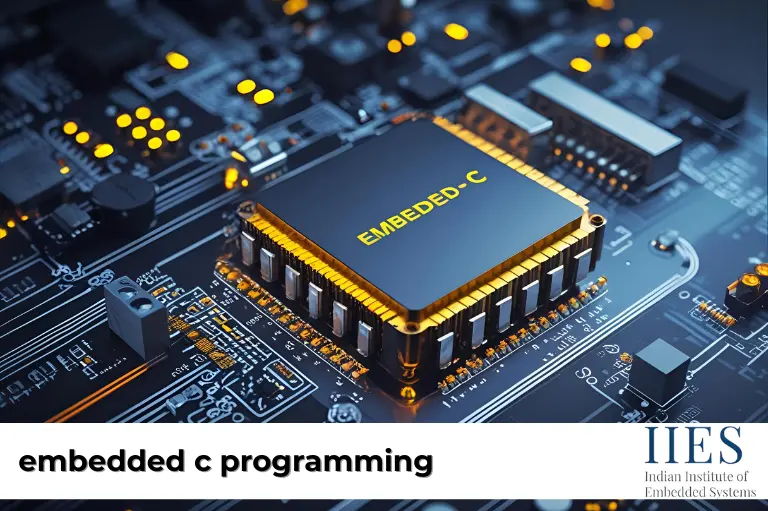Why Libraries Matter in Embedded System Programming
When working on embedded systems, developers face unique challenges like limited memory, real-time execution, and direct hardware interaction. Instead of writing every function from scratch, libraries provide pre-built, optimized, and tested code that saves time and reduces errors.
By leveraging the right C libraries, you can:
- Improve system performance and efficiency
- Ensure reliability and stability under resource constraints
- Enhance security and scalability
- Speed up development with reusable modules
For developers focusing on programming embedded systems in C or learning C programming for microcontrollers, these libraries are vital for professional projects.

1. FreeRTOS – Real-Time Operating System Kernel
FreeRTOS is one of the most widely used open-source RTOS kernels for embedded devices. Designed to be lightweight, it provides real-time scheduling and task management for resource-constrained systems.
Key Features:
- Preemptive, cooperative, and hybrid scheduling
- Portable across various microcontroller architectures
- Large community support and extensive documentation
- Scalable design for both small and complex projects
Use Cases:
- Automotive control units
- Industrial automation
- Smart home devices
- Consumer electronics
FreeRTOS is often paired with embedded software development tools and embedded systems testing tools to streamline development.
2. CMSIS – Cortex Microcontroller Software Interface Standard
Developed by ARM, CMSIS is a hardware abstraction layer (HAL) that standardizes software interfaces for Cortex-M microcontrollers. It allows developers to write consistent code across multiple ARM-based devices.
Key Features:
- Standardized APIs across Cortex-M microcontrollers
- Includes middleware for DSP, RTOS, and drivers
- Compatible with multiple toolchains and IDEs
- Reduces development complexity with reusable components
Use Cases:
- IoT wearables
- Healthcare devices
- Smart sensors
- Robotics projects
For microcontroller embedded C programming, CMSIS provides the foundation to build efficient and portable applications.
3. lwIP – Lightweight TCP/IP Stack
lwIP (Lightweight IP) is a small open-source TCP/IP stack designed for embedded systems that require internet or network connectivity while keeping memory usage minimal.
Key Features:
- Low memory consumption (optimized for RAM and ROM)
- Supports multiple network protocols
- Modular design with flexible configuration
- Widely integrated into embedded networking products
Use Cases:
- Smart home automation systems
- IoT gateways and hubs
- Networked industrial controllers
- Wireless modules in embedded devices
Developers working with embedded development tools often integrate lwIP to enable reliable network communication.
4. mbed TLS – Secure Communication Made Simple
Formerly known as PolarSSL, mbed TLS is an open-source cryptographic and SSL/TLS library. It provides the building blocks for secure communication in embedded systems, making it a go-to choice for IoT security.
Key Features:
- Wide range of cryptographic primitives
- Lightweight and portable across platforms
- Industry-standard compliance (SSL/TLS protocols)
- Easy integration with FreeRTOS, lwIP, and other stacks
Use Cases:
- IoT devices requiring encrypted data transfer
- Payment and financial systems
- Connected healthcare devices
- Secure firmware updates
For developers studying embedded C programming examples, mbed TLS demonstrates how security libraries are integrated into real projects.

5. HAL – Hardware Abstraction Layer
The Hardware Abstraction Layer (HAL) provides standardized APIs to interact with microcontroller peripherals. By abstracting hardware details, HAL makes your code portable and easier to maintain.
Key Features:
- Vendor-specific implementations for different microcontrollers
- Reduces complexity in low-level programming
- Enables code migration across hardware platforms
- Simplifies handling of peripherals like GPIO, ADC, and UART
Use Cases:
- Projects requiring quick prototyping
- Applications designed for multiple MCU platforms
- Code migration between different vendors (e.g., STM32, NXP)
HAL is particularly important in 8051 embedded C programming and C programming in 8051 microcontroller projects.
6. Embedded C Standard Library
The Embedded C Standard Library is a minimal version of the standard C library, optimized for microcontrollers and constrained environments. It offers the essential functions developers need without the overhead of a full C library.
Key Features:
- Lightweight and memory-optimized
- Includes functions for string handling, memory management, and I/O
- Compatible with standard C codebases
- Provides stable foundations for embedded development
Use Cases:
- Low-power embedded applications
- Small consumer electronics
- Educational projects for learning embedded programming
Many embedded C libraries are built on top of the standard library to extend functionality for real-world use cases.
7. Segger emWin – Powerful GUI Development Library
Segger’s emWin is a professional GUI library designed to create rich, interactive user interfaces for embedded systems. It enables developers to build intuitive UIs without worrying about performance bottlenecks.
Key Features:
- Wide range of GUI components (buttons, menus, charts, etc.)
- Optimized for fast rendering and low memory usage
- Supports both small and large display screens
- Scalable from basic UIs to advanced infotainment systems
Use Cases:
- Automotive infotainment systems
- Medical device interfaces
- Consumer electronics dashboards
- Industrial control panels
When paired with embedded systems testing tools, emWin helps ensure UI performance and stability.

Conclusion
Choosing the right C libraries for embedded systems can define your project’s success. From FreeRTOS for real-time scheduling to mbed TLS for secure communication and emWin for GUI design, these libraries help developers build efficient, secure, and scalable solutions. Whether you are learning 8051 embedded C programming or mastering advanced embedded software development tools, these libraries are essential.




